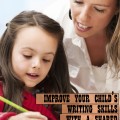Wow! All I can say is “Wow!” to describe how much fun this writer’s conference has been so far – and still more to come.
So far I’ve joined a couple classes about writing short stories, hooking the interest of a children’s book editor, plotting a novel, organizing your writing (and life!) and BOY did I need that one. *laughing*
It’s been a blast. And I’ve met a lot of new people, made some great contacts, and have found myself super inspired and motivated.
Ten things I’ve pulled from the Writing Conference:
- Replace weak passive verbs like “was” with active, colorful verbs.
- When adding magic to your world do not make magic the center of the book – your plot and characters should be strong enough without the magic to hold interest.
- Every word in a children’s picture book counts. When you think you are finished with the book edit out, tighten and make every word a sparkling word.
- Self-publishing is a viable and growing option in today’s world.
- It’s usually best to push through the first draft without editing. Don’t stop the flow of the muse until after you’ve finished the manuscript.
- There is a difference between “editing” and “rewriting”.
- A virtual book tour is a great way to market your book.
- If you can throw it out – throw it out.
- If it’s not your current project – put it away.
- Make your writing goals SMART goals.
So – what are the two best tips you’ve picked up from either the Muse conference, or another writing resource recently?









An interesting writing exercise – find a document, such as a letter, and look for elements of contrast and conflict. Using this as your basis, write a poem or a few hundred words of prose. It can be a tricky one but it’s really good practice.
A way to get started is to think about personal stories that you tell to others, e.g. funny things that happen to you. You’ll discover quickly that you tend to drop the less interesting elements and concentrate on the parts more likely to hold your audience. I’ve found being more aware of this to be very useful. For example, when I tell the tale of injuring my back, I usually include the fact that it happened in a foreign country and that I had to explain it in silly hand gestures to get them to understand me. The two hours in the waiting room was dull, and tends to be left out. 😉
An interesting writing exercise – find a document, such as a letter, and look for elements of contrast and conflict. Using this as your basis, write a poem or a few hundred words of prose. It can be a tricky one but it’s really good practice.
A way to get started is to think about personal stories that you tell to others, e.g. funny things that happen to you. You’ll discover quickly that you tend to drop the less interesting elements and concentrate on the parts more likely to hold your audience. I’ve found being more aware of this to be very useful. For example, when I tell the tale of injuring my back, I usually include the fact that it happened in a foreign country and that I had to explain it in silly hand gestures to get them to understand me. The two hours in the waiting room was dull, and tends to be left out. 😉
Wow, sounds like a great writing conference. The book Writing Romance by Vanessa Grant said a lot of the same things.
The newest thing I have been into is automatic writing. It helps get the flow going even if it seems like nonsense at first.
Sandra – You are SO write…er – right even. *grin* It is much easier for me to just free-form write without self-editing in the moment. If I can at least get it down on paper (or in the computer) than I have something to work with.
Rewriting and editing will help shape that later.